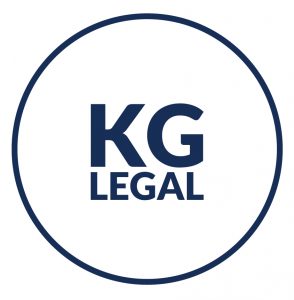Balancing debtor payments – principle and exceptions
 It is the debtor’s responsibility to regulate obligations. Generally, it can be stated that the obligations are regulated every day and at any time. The universality of this process creates the need to draw attention to the rights and obligations of the parties. Paweł Dyrduł, a lawyer from KG Legal Kiełtyka Gładkowski Sp.p with its registered office in Krakow, discusses the principle of balancing the debtor’s payments and the exceptions provided for by Polish law.
It is the debtor’s responsibility to regulate obligations. Generally, it can be stated that the obligations are regulated every day and at any time. The universality of this process creates the need to draw attention to the rights and obligations of the parties. Paweł Dyrduł, a lawyer from KG Legal Kiełtyka Gładkowski Sp.p with its registered office in Krakow, discusses the principle of balancing the debtor’s payments and the exceptions provided for by Polish law.
Principle of the debetor’s will
The issue of balancing debtor’s contributions in Polish law does not appear to be a major problem. The legislator, by constructing the provisions of the Civil Code, has adopted the principle that the debtor has the right to indicate what obligation he pays the payment. However, this entitlement is only due to him if the conditions laid down in art. 451 Civil Code premises. The first is to own several debts of the same kind, and the second is that payment have to repay the same creditor. The multiplicity of debts is to be understood as the obligation of the debtor in a single obligation relationship. The obligations owed by the debtor should have the characteristics that mark them as separate obligations, so their regulation in the law should be equated with the fulfillment of various benefits. When these conditions are met, the debtor will have the right to indicate which debt he repayes. The debtor can communicate to the creditor his will in any form. As a rule, the creditor has no right to oppose the will of the debtor, cannot refuse to fulfill his will. However, when it is allowed to fall into a delay.
Exception from the principle of will – the creditor’s entitlement
However, the second sentence of art. 451 §1 Civil Code is an exception to the principle of the debtor’s will. It grants a creditor the right to effectively enforce the debtor’s right to indicate for which debt the payment is made. The creditor has the right to satisfy claims from the case of debt-related debts and the outstanding principal. By definition of debt-related debts, the legislator understands first of all the costs of proceedings, and the outstanding principals are, for example, outstanding installments. If the creditor has exercised the right conferred on him by the legislator, thus making the debtor’s payment of the other receivable instead of on the indicated debt, assuming that the payment was made against charges or principal payments, the debtor is not entitled to object.
Position of the Polish Supreme Court
The problem of balancing the debtor’s payments according to the second sentence of art. 451 §1 Civil Code was the subject of a judgment of the Polish Supreme Court of 4 November 2016 (I CSK 732/15). The Polish Supreme Court stated in its ruling that the creditor is not obliged under art. 451 Civil Code to notify the debtor of the fact that his payment has been made in respect of overdue payments or outstanding principal. It is the debtor’s duty to obtain information from the creditor whether his payment was actually paid according to his will. Silence of the creditor is not considered as confirmation. The creditor loses his entitlement to a different account from the debtor’s will to settle the payment if he confirms the payment as indicated by the debtor. The Polish Supreme Court also notes that the creditor’s entitlement, as expressed in art. 451 §1 sentence 2 Civil Code it also applies to a debtor who has only one debt against the creditor and is composed of principal and overdue interest (a maiori ad minius).
Protecting the creditor’s interests
Ratio legis to introduce such a right in favor of the creditor was to protect his rights, property claims. The right to make payments to the statutory accounts receivable, i.e. de facto the right to modify the debtor’s will, has been introduced in view of the fact that the claim for entitlement to undischarged or overdue principal is time-barred for less than the principal benefit. It is thus protecting the creditor’s interests. The debtor’s right to express his will, and therefore to indicate to whom the creditor’s debt is to be paid, expires when he has not indicated the debt he wants to meet and accepts the receipt on which the creditor has indicated which of the debts he has received. It is also possible that both the debtor and the creditor will not make a statement to the other party against whom the debt has been paid. Ex lege is then charged for the deferred debt, and if the debtor has a number of obligations with the same creditor against the most deferred debt.
Abstract: liabilities, protection of the debtor and creditor
The article was prepared by KG LEGAL KIEŁTYKA GŁADKOWSKI based in Cracow, Poland, specialising in cross border cases, with its focus on new technologies, IT and life science. It discuesses methods of recording the debtor’s contributions, the principle of the debtor’s will and exceptions.
Paweł Dyrduł, lawyer (specializing in banking law, financial law) from KG LEGAL KIEŁTYKA GŁADKOWSKI – PARTNERSHIP office in Cracow, specializing in cross border issues and servicing life science and IT companies, discusses the basic principle of balancing the debtor’s contributions provided for by Polish law and the exceptions.
